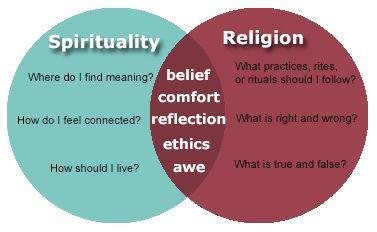Navigating The Paths to Transcendence
When we talk about the human belief system, two distinct paradigms emerge first is external religion and second is our internal spirituality. While both these avenues address fundamental questions about existence, our purpose, and the nature of the divine, they do so through very different lenses, each offers a unique perspectives in regards to the path towards transcendence or enlightenment.
External Religion: Rituals Ceremonies and Community
It often manifests as organized belief systems with structured rituals, doctrines, and hierarchies. These traditions provide a framework for understanding the universe and our place within it, offering guidance on moral conduct and spiritual fulfillment. From the grand cathedrals of Christianity to the serene temples of Buddhism, external religions provide sacred spaces where people gather to worship, seek guidance, and celebrate shared beliefs.
The rituals followed play a central role in the practice of external religion, serving as symbolic acts that connect individuals to their faith, community, and their deity. Whether it’s through prayers, the observance of holy days, or the performance of sacraments, and acts if fasting, rituals offer a tangible way to express devotion and reinforce our religious identity.
It also helps to foster a sense of belonging through community involvement. Believers come together to worship, study scripture, and support one another through life’s trials and triumphs. This communal aspect not only provides emotional and social support but also reinforces adherence to shared values and beliefs.
Internal Spirituality: The Journey Within (The Self)
In contrast, internal spirituality focuses on individual exploration and personal connection to the divine. Rooted in practices such as meditation, mindfulness, and self-reflection, internal spirituality encourages seekers to look inward for answers, wisdom, and enlightenment. Rather than relying on external authorities or institutions. These practitioners of internal spirituality seek to cultivate a direct and intimate relationship with the sacred Devine through direct channels.
Central to internal spirituality is the idea of self-discovery and self-realization. By delving into the depths of our own consciousness, individuals aim to uncover truths about the nature of reality, the self, and existence itself. This introspective journey often leads to profound insights, spiritual growth, and a deep sense of interconnectedness with all life.
Unlike external religion, which may emphasize conformity and adherence to established doctrines, internal spirituality encourages autonomy and self-expression. Practitioners are free to explore a diverse array of beliefs, philosophies, and practices, adapting them to suit their unique spiritual journey. This fluidity allows individuals to evolve and grow spiritually without being bound by the normal dogma or traditions that look to limit our potential.
Integration and Harmony: Bridging the Gap
While external religion and internal spirituality may seem diametrically opposed, they need not be mutually exclusive. Many individuals find value in integrating elements of both approaches into their spiritual lives, forging a path that honors tradition while embracing personal growth and exploration.
For some, participation in religious rituals and community gatherings provides a sense of structure, connection, and continuity while At the same time, they may supplement these external practices with internal disciplines like meditation, contemplation, and mindfulness to deepen their spiritual experience and foster inner peace.
Ultimately, whether one chooses the path of external religion, internal spirituality, or a blend of both, the quest for transcendence and enlightenment remains a deeply personal journey. By honoring diverse paths to the Devine and cultivating understanding and respect for not just yours but another’s beliefs, we can foster a world where individuals are free to explore, express, and evolve on their spiritual paths.
When we are in the company of others, it’s essential to take time to learn about their gods and to respect them. Joining them in prayer or in their traditions can go a long way in bridging the gap between different belief systems, fostering understanding, empathy, and mutual respect.
